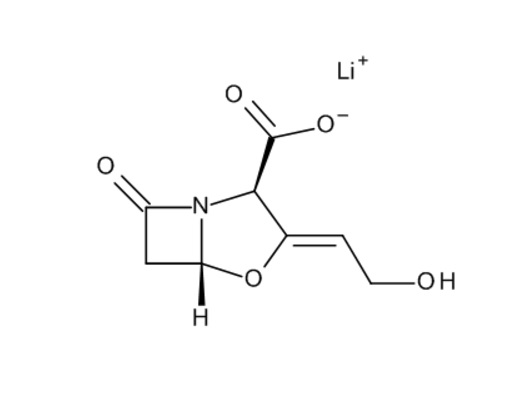ANTI-ANDROGEN RECEPTOR
Synonym(s):AR;Areg Antibody;AREG Antibody - Anti-AREG antibody produced in rabbit;CRDGF;DHTR
- Molecular Weight: 0
- MDL number: MFCD01321686
- Update Date: 2023-04-23 13:52:06
What is ANTI-ANDROGEN RECEPTOR?
The Uses of ANTI-ANDROGEN RECEPTOR
Rabbit anti-androgen receptor (C19) was used in a EMSA (electrophoretic mobility shift assay) which produced a supershift in the molecular weight of a particular DNA sequence indicating binding of the androgen receptor.
General Description
Androgens are the male sex hormones that exert biological and transcriptional effects on binding to nuclear androgen receptor (AR). Androgens in humans include androstenedione, testosterone, dihydrotestosterone and dehydroepiandrosterone. Androgen receptor is a ligand inducible nuclear receptor, expressed on brain, bone, skeletal muscles, genital organs, hair follicles and cardiovascular tissue. On binding androgen, the AR is internalized and modulates the transcriptional of target genes. Additionally, AR also exerts extra-nuclear actions wherein it rapidly induces signalling cascades of MAPK and protein kinase C. The regulation by AR results in irreversible sexual differentiation of sex organs during embryogenesis and development of sex-specific characteristics during puberty
Anti-Androgen Receptor specifically recognizes the human androgen receptor protein (110 kDa). An additional band may be observed at 45 kDa. The antibody cross-reacts with rat androgen receptor.
Properties of ANTI-ANDROGEN RECEPTOR
| storage temp. | -20°C |
| form | buffered aqueous solution |
Safety information for ANTI-ANDROGEN RECEPTOR
Computed Descriptors for ANTI-ANDROGEN RECEPTOR
New Products
4-AMINO-TETRAHYDRO-PYRAN-4-CARBOXYLIC ACID HCL 4-(Dimethylamino)tetrahydro-2H-pyran-4-carbonitrile 4-Aminotetrahydropyran-4-carbonitrile Hydrochloride (R)-3-Aminobutanenitrile Hydrochloride 3-((Dimethylamino)methyl)-5-methylhexan-2-one oxalate 1,4-Dioxa-8-azaspiro[4.5]decane 5-Bromo-2-nitropyridine Nimesulide BP Aceclofenac IP/BP/EP Diclofenac Sodium IP/BP/EP/USP Mefenamic Acid IP/BP/EP/USP Ornidazole IP Diclofenac Potassium THOMAIND PAPER PH 2.0 TO 4.5 1 BOX BUFFER CAPSULE PH 9.2 - 10 CAP SODIUM CHLORIDE 0.1N CVS ALLOXAN MONOHYDRATE 98% PLATINUM 0.5% ON 3 MM ALUMINA PELLETS (TYPE 73) LITHIUM AAS SOLUTION 2-Bromo-1-(bromomethyl)-3-chloro-5-nitrobenzene 2-Bromo-3-nitroaniline N-(3-Hydroxypropyl)-N-methylacetamide 3-Bromo-6-chloropyridazine 4-ethyl-3-nitrobenzoic acidYou may like
-
 Anti-AREG antibody produced in rabbit CASView Details
Anti-AREG antibody produced in rabbit CASView Details -
 Anti-AR antibody produced in rabbit CASView Details
Anti-AR antibody produced in rabbit CASView Details -
 Anti-Androgen Receptor antibody produced in rabbit CASView Details
Anti-Androgen Receptor antibody produced in rabbit CASView Details -
 1823368-42-8 98%View Details
1823368-42-8 98%View Details
1823368-42-8 -
 2-(3-(tert-butyl)phenoxy)-2-methylpropanoic acid 1307449-08-6 98%View Details
2-(3-(tert-butyl)phenoxy)-2-methylpropanoic acid 1307449-08-6 98%View Details
1307449-08-6 -
 Ethyl 3-(furan-2-yl)-3-hydroxypropanoate 25408-95-1 98%View Details
Ethyl 3-(furan-2-yl)-3-hydroxypropanoate 25408-95-1 98%View Details
25408-95-1 -
 2-Chloro-5-fluoro-1-methoxy-3-methylbenzene 98%View Details
2-Chloro-5-fluoro-1-methoxy-3-methylbenzene 98%View Details
1805639-70-6 -
 Lithium ClavulanateView Details
Lithium ClavulanateView Details
61177-44-4